Filter by

Gender & Society, Volume 32, Number 2, April 2018
- Edition
- -
- ISBN/ISSN
- 08912432
- Collation
- -
- Series Title
- -
- Call Number
- -
- Edition
- -
- ISBN/ISSN
- 08912432
- Collation
- -
- Series Title
- -
- Call Number
- -
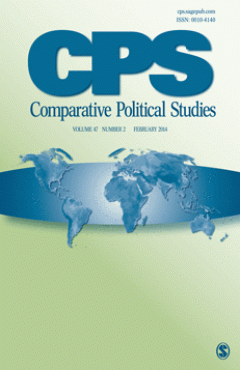
Comparative Political Studies, Volume 51, Number 6 May 2018
- Edition
- -
- ISBN/ISSN
- 00104140
- Collation
- -
- Series Title
- -
- Call Number
- -
- Edition
- -
- ISBN/ISSN
- 00104140
- Collation
- -
- Series Title
- -
- Call Number
- -

Comparative Political Studies, Volume 51, Number 5, April 2018
- Edition
- -
- ISBN/ISSN
- 00104140
- Collation
- -
- Series Title
- -
- Call Number
- -
- Edition
- -
- ISBN/ISSN
- 00104140
- Collation
- -
- Series Title
- -
- Call Number
- -

Administratrive Science Quarterly, Volume 63, Number 1, March 2018
- Edition
- -
- ISBN/ISSN
- 10464964
- Collation
- -
- Series Title
- -
- Call Number
- -
- Edition
- -
- ISBN/ISSN
- 10464964
- Collation
- -
- Series Title
- -
- Call Number
- -

Media Culture & society, Volume 40, Number 3, April 2018
- Edition
- -
- ISBN/ISSN
- 01634437
- Collation
- -
- Series Title
- -
- Call Number
- -
- Edition
- -
- ISBN/ISSN
- 01634437
- Collation
- -
- Series Title
- -
- Call Number
- -
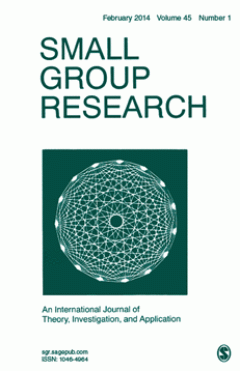
Small Group Research, Volume 49, Number 2, April 2018
- Edition
- -
- ISBN/ISSN
- 10464964
- Collation
- -
- Series Title
- -
- Call Number
- -
- Edition
- -
- ISBN/ISSN
- 10464964
- Collation
- -
- Series Title
- -
- Call Number
- -
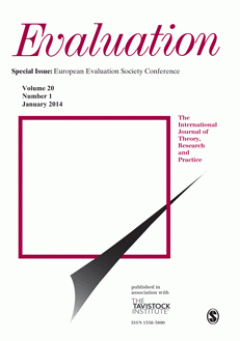
Evaluation, Volume 24, Number 2, April 2018
- Edition
- -
- ISBN/ISSN
- 13563890
- Collation
- -
- Series Title
- -
- Call Number
- -
- Edition
- -
- ISBN/ISSN
- 13563890
- Collation
- -
- Series Title
- -
- Call Number
- -
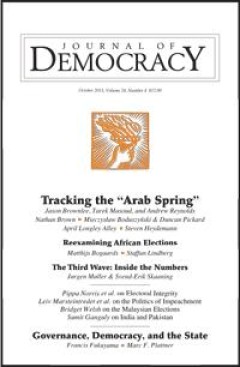
Journal of Democracy, Volume 28, Number 3, July 2017
- Edition
- -
- ISBN/ISSN
- 10455736
- Collation
- -
- Series Title
- -
- Call Number
- -
- Edition
- -
- ISBN/ISSN
- 10455736
- Collation
- -
- Series Title
- -
- Call Number
- -

Journal of Democracy, Volume 29, Number 2, April 2018
- Edition
- -
- ISBN/ISSN
- 10455736
- Collation
- -
- Series Title
- -
- Call Number
- -
- Edition
- -
- ISBN/ISSN
- 10455736
- Collation
- -
- Series Title
- -
- Call Number
- -
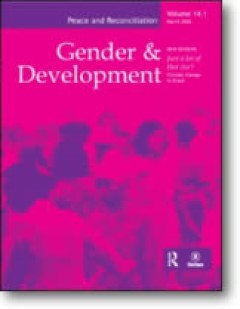
Gender & Development, Volume 22, Number 2, July 2014
- Edition
- -
- ISBN/ISSN
- 13552074
- Collation
- -
- Series Title
- -
- Call Number
- -
- Edition
- -
- ISBN/ISSN
- 13552074
- Collation
- -
- Series Title
- -
- Call Number
- -

Jihad NU Melawan Korupsi: Studi Kontemporer Fiqih Antikorupsi di Indonesia
Sudah lama kita yakini, perjuangan melawan korupsi merupakan perjuangan yang sejalan dengan spirit keagamaan (ruhul jihad). Dalam situasi seperti sekarang ini, perang melawan korupsi bisa disepadankan dengan jihad fi sabilillah. Tidak ada yang menyangkal bahwa korupsi merupakan tindakan kejahatan, bahkan ada yang menyebut sebagai kejahatan luar biasa (extraordinary crime) yang tidak bisa dipera…
- Edition
- 1st print
- ISBN/ISSN
- 978-979-18217-8-0
- Collation
- XVI + 194p.; 24 cm
- Series Title
- -
- Call Number
- 364.132 3 AHM j

Jihad Nahdlatul Ulama Melawan Korupsi
Nahdlatul Ulama dipercaya memiliki kekuatan yang besar dalam mengambil pengaruh di masyarakat. Karena itu pula, sebagai bagian penting dari komponen bangsa, Nahdlatul Ulama telah banyak berperan untuk memperbaiki kehidupan berbangsa dan bernegara jauh sebelum Indonesia merdeka. Di tengah bertumpuknya persoalan bangsa, satu hal pokok yang menjadi perhatian buku ini adalah korupsi. Dengan sangat…
- Edition
- -
- ISBN/ISSN
- 9789791821780
- Collation
- xvi, 175p.; 22 cm
- Series Title
- -
- Call Number
- -

Pelaksanaan Reforma Agraria: arahan Kantor Staf Presiden prioritas nasional r…
Nawacita memuat agenda reforma agraria dan strategi membangun Indonesia dari pinggiran dimulai dari daerah dan desa. Dalam pembangunan nasional, reforma agraria menjadi dasar bagi kebijakan ekonomi nasional melalui upaya pemerataan pembangunan, pengurangan kesenjangan, penanggulangan kemiskinan dan penciptaan lapangan kerja di pedesaaan. Guna memastikan reforma agraria dalam Nawacita berjalan d…
- Edition
- -
- ISBN/ISSN
- -
- Collation
- 91p.; 21 cm
- Series Title
- -
- Call Number
- 333.7 IND p

Mantra Kehidupan: sebuah refleksi melewati fresh graduate syndrome & quarter …
Lulus dari bangku perguruan tinggi bukan berarti kehidupan akan datar-datar saja. Setiap orang akan dihadapkan pada ketidakpastian, keraguan, kebimbangan, dan kegalauan yang tak berkesudahan. Pada masa transisi ini pertanyaan tentang masa depan memang tengah memuncak. Anda mungkin akan terombang-ambing mempertanyakan diri sendiri di �persimpangan jalan� ini. Apa yang sebenarnya dicari? Mau di…
- Edition
- -
- ISBN/ISSN
- 9786020401881
- Collation
- xii, 268p.; 21 cm
- Series Title
- -
- Call Number
- 920 WIB m

The Ambassadors' Journey: cerita saya dan para jebolan Duta Wisata se-Indonesia
Duta wisata dipilih bukan hanya untuk sebuah event seremonnial, tapi menjadi tumpuan aktualisasi generasi muda-menjadi mitra pemerintah dalam membranding destinasi pariwisata di Indonesia, khususnya di kota/kabupaten masing-masing. Buku ini berbasis penelitian berisi perjalanan penulis maupun sesama alumni duta wisata lainnya selama dan setelah mengemban amanah. Harapannya, cerita sederhana in…
- Edition
- -
- ISBN/ISSN
- 9786021277638
- Collation
- xix, 240p.; 21 cm
- Series Title
- -
- Call Number
- 920 WIB a

Draft Modul Training of Trainer (TOT) Lokakarya Pengayaan Wacana AGama dan Ke…
- Edition
- -
- ISBN/ISSN
- -
- Collation
- 152p.; 21 cm
- Series Title
- -
- Call Number
- 201.6 SOF d
- Edition
- -
- ISBN/ISSN
- -
- Collation
- 152p.; 21 cm
- Series Title
- -
- Call Number
- 201.6 SOF d

Strategi Implementasi NDC (Nationally Determined Contribution)
- Edition
- -
- ISBN/ISSN
- 9786027401167
- Collation
- viii, irregular, 21 cm
- Series Title
- -
- Call Number
- 333.7 RAC s
- Edition
- -
- ISBN/ISSN
- 9786027401167
- Collation
- viii, irregular, 21 cm
- Series Title
- -
- Call Number
- 333.7 RAC s

INterfaith Dialogues in Indonesia and Beyond Ten Years of ICRS STudies (2007-…
- Edition
- -
- ISBN/ISSN
- 9782889311842
- Collation
- 218p.; 21 cm
- Series Title
- -
- Call Number
- 201.6 EPA i
- Edition
- -
- ISBN/ISSN
- 9782889311842
- Collation
- 218p.; 21 cm
- Series Title
- -
- Call Number
- 201.6 EPA i

Pedoman Delegasi Republik Indonesia dalam Mengikuti Pertemuan United Nations …
- Edition
- -
- ISBN/ISSN
- -
- Collation
- 38p.; 21 cm
- Series Title
- -
- Call Number
- 333.7 IND p
- Edition
- -
- ISBN/ISSN
- -
- Collation
- 38p.; 21 cm
- Series Title
- -
- Call Number
- 333.7 IND p

Prosiding Workshop Nasional Menterjemahkan Transparency Framework Perjanjian …
- Edition
- -
- ISBN/ISSN
- 9786027401143
- Collation
- iv, 46p.; 21 cm
- Series Title
- -
- Call Number
- 333.7 WIB p
- Edition
- -
- ISBN/ISSN
- 9786027401143
- Collation
- iv, 46p.; 21 cm
- Series Title
- -
- Call Number
- 333.7 WIB p
 Computer Science, Information & General Works
Computer Science, Information & General Works  Philosophy & Psychology
Philosophy & Psychology  Religion
Religion  Social Sciences
Social Sciences  Language
Language  Pure Science
Pure Science  Applied Sciences
Applied Sciences  Art & Recreation
Art & Recreation  Literature
Literature  History & Geography
History & Geography